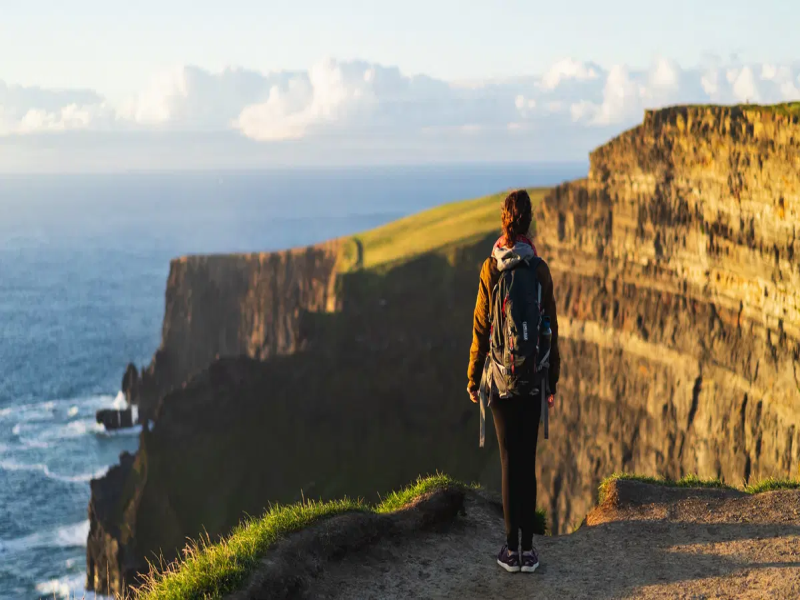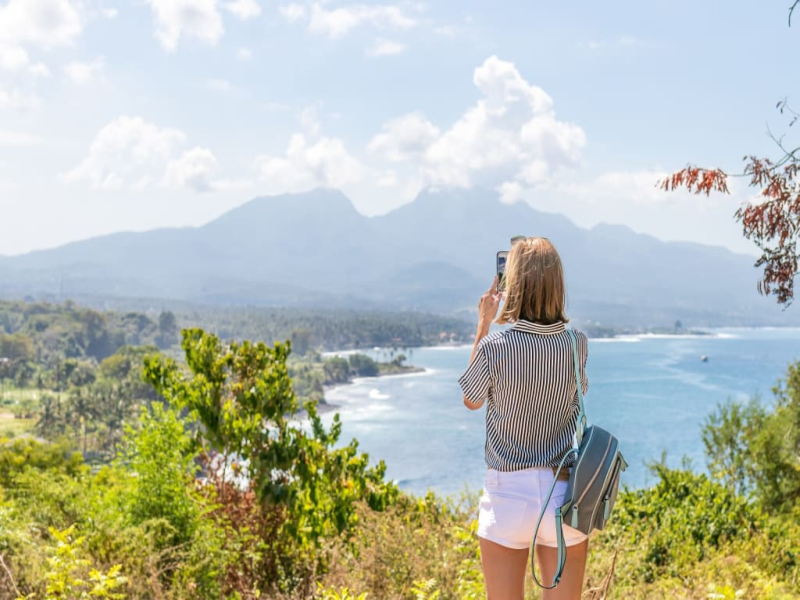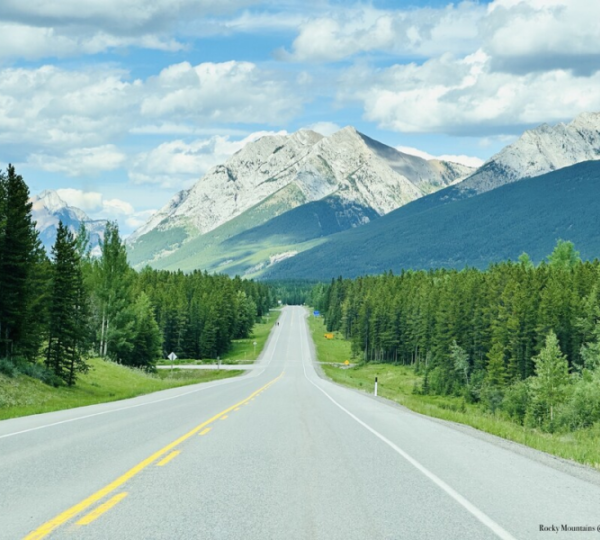Introduction – Finding Fulfillment in Minimalist Travel
As everyone is surrounded by an increasing number of gadgets, trinkets, and the myriad of other elements one can possibly need on their travels, people are starting to see the attraction in intentionally only taking with them what they really need to be taking on a journey. The concept behind minimalist travel is a deliberate rejection of the rat race of accumulating stuff in favor of the experiences per trip regardless of how basic they may be. – Finding Fulfillment in Minimalist Travel
It means that willingness to accept the happiness of choosing the less of travel means choosing a simpler, more profound travel experience. If we start to leave behind material concerns on our travels, we can also leave behind the concerns that clutter up our minds, and open our worlds, and ourselves up to new cultural experiences, and to growing as human beings. This guide will also discuss what minimalist travel entails, its advantages, and how one can achieve simple traveling.

Understanding the Concept of Minimalist Travel
In its broader context therefore, minimalist travel is not a process of travelling light but a holistically transition from substance to purpose of travel. If we reduce the things we carry in our minds and hands then we allow more space for real connections, growth and happiness in mere spaces.
What Does It Mean, to Practice Minimalist Travel?
In its essence, minimalist travel is defined as travel that is done with only what is absolutely necessary, where value is placed on longevity, rivaled only by functionality. Such travelers seek to own even the fewer number of possessions, preferring experiences, absorbing and, generally, a more liberal attitude toward their adventures.
Definition and Principles: It eliminates lots of stuff from a traveler’s life and allows a person to live very consciously during a trip and enjoy processes rather than things.
Comparing Traditional vs. Minimalist Travel: When compared to ‘conventional’ traveling where one plans for every possibility and packs items, minimalist traveling is about packing important general-use items. When using this method, stress can be cut, freedom gained and more impulsive adventurous activities can be embarked on.
Philosophy of Minimalism And Traveling
Wanderlust embodies itself closely in the overall concept of minimalism, a concept that emphasizes purpose and that which is of the greatest value. Through engaging the intended components of the trip, the purpose of this paper is to encourage people to approach the journey and every component within it deliberately, from packing, to planning and even to how a traveler communicates with the geographical locations and other persons that are involved.
Living with Less: Reduced life means fewer things in a design, and it applies to travel. These simplifications free travelers from the greed of possessions and enable them to appreciate what is life, and important in life.
Focus on Experiences Over Possessions: With minimalist travel, a traveler is forced to avoid spending money on things and opt for things that matter, such as friendship, hiking or learning about the people and their way of live. This transformation from acquisition of ‘things’ to ‘experience’ makes people progressive, more fulfilled.
Environmental Impact: Minimalist travel also ensures that we keep the natural bearing capacity low. Own less and there will be less packing material, lesser creation of waste and reduced use of natural and other resources. Minimalists may also be inclined to prefer the environment friendly accommodations and practices during travel, that is, travel consideration based on responsibility to the environment.
Example: In Japan, they have chronicled the shopping and spending patterns of international travelers, which could cause minimalist travelers to avoid large shopping areas in favor of truly engaging in cultural experiences, such as a tea ceremony, or even a market tour.
Consequentially, minimalist travel cannot only be reinterpreted as the lack of some material loads but also as the focus on the satisfaction of needs, impacts, and the protection of the environment.
The Benefits of Minimalist Travel
Minimalist travel is not just a way to avoid carrying too much with you – it has multiple advantages that are connected with it. More liberty and choice, self-actualization and cost effectiveness compose the virtues of minimalist travel that gives new opportunities to people and makes them feel closer to life.
Greater Liberty and Elasticity – Finding Fulfillment in Minimalist Travel
The basic and perhaps the most observable benefits of minimalist travelling is the ability to travel light. When we trim down what we own, then there is less of an ordeal in managing lots of items, and travel becomes more fluid and less cramped.
• Travel Light, Move Freely: Little carries less stress, whether it is when walking through urban train stations, lifting baggage into rental cars or moving from one abode to another. On the go basis reduces the accompanying burden of check-in luggage and baggage-related losses, which makes traveling easier and less stressful.
• Spontaneity in Travel Plans: Nomadic existence is less rigid, this is because by following minimalistic approach to traveling, one gets to. Travelling without excess luggage also improves your flexibility since it’s easy to update a schedule, such as taking an earlier flight or changing a tour around a new place. This flexibility can create opportunities that may not be available if burdened with full luggage: extra freedom to roam, go places, and do things that otherwise are off limit due to luggage constraints of a traditional backpacker.
Enhanced Focus on Experiences
Traveling lightly removes any distractions that come with carrying so many personal belongings and helps you appreciate the experiences collected rather than those left behind. Since the concept of eliminating distractions and focusing on various interactions, objective experiences, and unadulterated nature can be quite overwhelming, travelers mostly feel that their journeys are much more rewarding.
• Connecting with Local Culture: When one is not so worried about organizing the things, then they get to attend to what goes on around them and embrace the culture. In general, for the occupants minimalism may pay off in the sense that it makes it easier to be ‘present’ in cultural interactions, be it speaking with the people or practicing traditional art or attending traditional ceremonies etc.
• Greater Mindfulness and Presence: Therefore, people have the possibility to be aware of the present moment and focused when being minimalists and travelling, engrossed by their belongings. This increases travelers’ exposure and consideration of the beauty and distinctiveness of each place hence developing long term memorable experiences.
Example: It is better when a traveler who does not need souvenirs to stay in Thailand can walk through the villages or go to a traditional culinary program instead of buying unnecessary souvenirs.
Money Saved and Free Money – Finding Fulfillment in Minimalist Travel
Minimalist travel also proves cost-effective for the same reason, it frees the traveler to spend their resources on goods and service that is useful and high-value items in lieu of expensive luggage and check in fees that comes with carrying too many clothes and other stuff.
• Reduced Expenses: This way, there is no much luggage that is taken along or that requires extreme attention with fees charged by the airline and in case anything gets lost or damaged, there is little to replace. As well, having grown up with a philosophy centered on simplicity they can ill afford to incur unnecessary expenses thus reducing general expenditure.
• Prioritizing High-Value Experiences: Minimalist travel in financial freedom lets you put your money where your time goes, such as in a hike with a guide, a cooking lesson, or an art tour. Such solutions are much more valuable than tangible goods and their non-physical nature contributes more to the augmentation of the value of the trip.
Case Study: A traveler who uses minimalist travel was happy as they decided to avoid paying extra baggage fees and cheap hotels; they managed to book a guide wildlife tour in Costa Rica and therefore created a memorable experience and a learning session without necessarily having to pay for the cost of extra luggage.
Education and Self actualization – Finding Fulfillment in Minimalist Travel
Minimalist travel means that tourists can benefit from developing their personalities as they free themselves from having to consume goods and services and learning to endure more and explore more.
• Learning to Let Go: To have less in their bags or their pockets is to forego things that we modern people claim are necessities such as more clothes or yet another gizmo. This practice of releasing helps one to be independent and forces the traveler to embrace happiness in the current moment.
• Building Resilience and Adaptability: It is here that minimalists discover the importance of adaptability when no extra stuff is available for reinforcement – travelers must be able to handle whatever transpires at every instance. It was also noticed that having such an opportunity to change the surroundings makes people more self-reliant and develop themselves as they discover they can cope with various conditions and people with only some limited equipment.
It is, thus, reasonable to conclude that minimalist travel is not about organizing a trip in a most efficient manner only; it is about discovering value in purposeful travel. Due to free will, attentiveness, financial literacy, and personal development, minimalist travel turns trips into meaningful experiences and meaningful relationships.
Practical Tips for Embracing Minimalist Travel – Finding Fulfillment in Minimalist Travel
Deciding to travel lightly more than just choosing to pack less things which therefore the subject under consideration. By making a few changes in the way that you plan and prepare for travel, you can minimize frustration and enjoy every trip. Below are some useful guidelines to use while packing your bags so that you can travel with less things and more purpose.
Packing Essentials Only
Packing is probably one of the best ways to reduce one’s initial contact with the minimalist traveling status. In this way focusing on versatility and practicality you can unload a bit and still be ready for anything.
- Choosing Multi-Functional Items: Choose your clothing and gear so that one piece of equipment can be used for more than one function. For instance, faster-drying garments are efficient for the day trip and for the night-time strolls, too; a heavy shawl could serve as a warm wrap during flights or as a piece of a clothing when the local culture does not permit revealing clothing.
- The Capsule Wardrobe for Travel: Casual wardrobe means several sets of clothes that can be combined due to the similarity of their color and style. For a one week vacation it may include 2-3 bottoms, 3-4 tops and one or two accessories. For the best matches of the outfits, it is necessary to pay attention to the neutral colors or the patterns that can match with others.
- Minimizing Toiletries and Personal Care Items: Cosmetics are typically one of the biggest offender in terms of luggage overweight, so buy mini containers or at least pack small individual bottles or jars, use items that can be dual purpose such as shampoo bar or laundry bars. Think about dense products such as a bar soap or lotion sticks which take less space and fit TSA regulations.
- Example Packing List for Minimalist Travelers:
- Clothing: 3 pieces of top wear, 2 pieces of bottom wear, 1 piece of jacket or sweater, 1 pair of walking shoes, 1 pair of sandals
- Toiletries: Shampoo bar, toothbrush, teeth whitening tablets, sunblock stick, body spray, small compact hairbrush
- Gear: This list of items would include generally a lightweight backpack with enough space for your other items, a reusable water bottle, lightweight and quick-drying travel towel as well as an e-reader or journal.

Planning Around Experiences Rather Than Stuff
In minimalist travel, travelers are able to highlight experiences and meeting people rather than purchasing items tourists usually do on their trips. When you have purpose or intention behind each trip, you can make the purpose of the trip much more simple and fulfilling.
• Setting Intentional Travel Goals: It would be wise to decide whether you’re aiming for personal or experiential goals before you go. You should have to ask yourself, “What am I hoping to gain or discover on this journey?” Examples of purpose might be to meet the people, to test a new experience or to enjoy the endogenous attractions of the destination.
• Choosing Activities Over Shopping: Do not spend your time inside tourist shops, try to go to tours, participating in workshops, or visiting cultural sites. Things like cooking classes, nature trail, art classes are programmes that one does not get elsewhere and they give much more value than something physical.
Example: There is still the ability to save money; a frugal traveler might decide to learn pasta making and then go taste wine at a family run winery rather than shop in the tourist traps. These things create better moments and associations than the things they could buy.
Adopting Digital Solutions
Minimalist travel does not have to be technologically boring: you can store all your important information, films, books, and documents online. Technology innovations that solve concerns with packing also helps improve your travelling experience.
• Using Digital Tools for Travel Convenience: With applications such as Google Maps with download feature, TripIt for itinerary, and XE Currency for currency exchange you can almost eliminate the use of maps, tour guides or small change currency converter. Most of the current available digital applications enable the storage of itineraries, booking management, and efficient tracking of expenses.
• Replacing Physical Books with E-Books: Smart devices such as e-readers or tablets allows you to carry whole library of books with out the volume added. For the literary enthusiasts it is commonplace since it helps to minimize space and at the same time contains entertainment and information.
Example of Digital Tools:
• Google Maps: Pre-download maps in order to use them without Internet connection for it is helpful in places with spotty Internet access.
• Kindle App or E-reader: Small, easy to carry electronic reader can contain several hundred books ideal necessary for prolonged flights or leisure.
• Duolingo or Google Translate: For language practice and corpus alignment effective for translations that makes local interaction more accessible.
Through these practical tips on minimalist travel, tourists can still get to enjoy its advantages without having to } suffer from discomfort. Buy only what is necessary, and organize your lives so that you enjoy the trip more and learn to use the tools more efficiently.

Conclusion – Finding Fulfillment in Minimalist Travel
The beauty and the concept of minimalist travel is all about minimal aspects, deliberate choices and value that the traveler seeks. People who embrace minimalism travel lighter, meaning they only take what is necessary hence they are free to enjoy, free from carrying material items that they do not need during their travel hence they get to interact with their environment and immerse themselves with it. But what is probably even more important is that reduced travel is not only about taking fewer things with you – it is about deciding that you value creating memories, self-improvement, and interacting with different cultures more than having more things.
Traveling with passion for simplicity means that you can explore every place to the fullest and with no weights of extra luggage to carry or things bought while still on the tour. As you pay attention to what you need, organize your trip while incorporating meaningful activities, and leverage technology correctly, you are able to turn your trips into meaningful experiences.
Takeaway: Try just the tiniest of steps to begin with: maybe leave some items at home the next time you travel or opt for activities instead of purchases. If you progress patiently through these steps, you will find the liberty and enjoyment that minimalistic travelling brings you, and every trip becomes special.
In many respects, minimalist travel is a call to embrace efficiency and to learn that nothing is as satisfying as a stripped-back approach in this context. Journeys safe and may you find yourself overload with experience and short in baggage only.
References – Finding Fulfillment in Minimalist Travel
- MindfulTravel.org: Resources and guides on minimalist and mindful travel, including practical tips for packing and planning.
- Nomadic Matt: Insights on minimalist travel, budgeting, and prioritizing experiences over possessions.
- Books on Minimalism and Travel:
- The Art of Simple Travel by Courtney Carver – A guide on traveling light and focusing on experiences.
- The Joy of Less by Francine Jay – Principles of minimalism applicable to travel and daily life.
- Sustainable Travel Resources:
- The Journal of Sustainable Tourism: Research on eco-friendly travel practices, including the environmental impact of minimalist travel.
- Sustainable Tourism websites, such as Green Global Travel, providing insights on how minimalist travel reduces environmental footprints.
- Popular Minimalist Travel Blogs:
- Becoming Minimalist by Joshua Becker – Personal accounts and practical advice on adopting a minimalist lifestyle, including travel insights.
- The Minimalists by Joshua Fields Millburn & Ryan Nicodemus – Articles on simplicity, mindful living, and the benefits of minimalist travel.
These references provide valuable information on the principles, benefits, and practical tips for minimalist travel, helping travelers embrace simplicity and mindfulness on their journeys.




